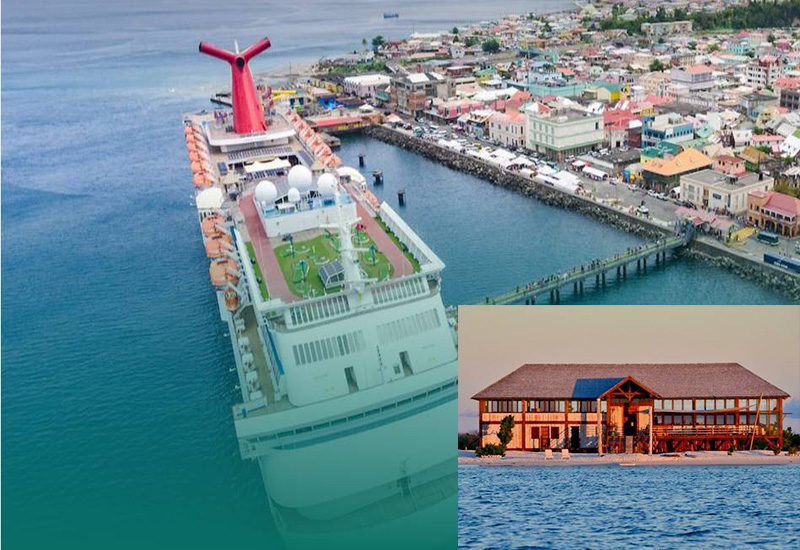By Debbie Ransome
Going beyond the basic storyline to dig deeper into the Haitian reality and how it gets reported, this

It was hardly surprising that the B-word, Brexit, would loom large when Caribbean travel professionals gathered for their first look at tourism in 2019.
The occasion was the Caribbean Tourism Organisation’s (CTO) session looking at 2018 performance and the outlook for 2019. According to the CTO report, the United Kingdom remains one of the most important markets for arrivals in the Caribbean – about 22% of visitors.
Industry analysts from the region, Britain and the United States took part in the livestreamed conference and Q&A session, hosted from Barbados.
Pippa Jacks, group editor of the Travel Trade Gazette (TTG), had been invited to join the conference from the UK to share findings from TTG’s look at how Brexit is affecting travel to the Caribbean.
Ms Jacks outlined how British tourism had ended on a strong note in 2018. She admitted that the whole world and the tourism industry had been watching the Brexit process, but that the travel industry had been “trying to press on until there’s clarity”.
Strong position
She explained that, if anything, the growth of the long-haul, luxury and tailor-made travel market had meant that the Caribbean remained in a strong position to plan for a rise in bookings in 2019.
She told the CTO session that the travel industry had been given guarantees that the “horror show of planes not taking off” following Brexit would be avoided.
Ms Jack said that, even if British travellers had less money in their pockets, neither a hard or a soft Brexit would dampen the “widespread propensity to travel”.
“Long-haul destinations shouldn’t worry too much,” Ms Jack told the conference. “Holidaymakers want to get away from the European Union,” she added.
She also pointed out that economic uncertainty in the past in the UK had usually led to a preference for Caribbean holidays.
Asked about the UK visitor arrivals remaining the same in 2018, Ms Jacks said that any decline in travel in 2018 could have been put down to “great weather” in Britain, the World Cup and other factors that had favoured short-haul travel.
Asked about other challenges for Caribbean tourism in 2019, Ms Jacks pointed to the return to the tourism market of Tunisia, Turkey and Egypt after past terror attacks on tourists.
Diaspora “brand champions”
CTO Secretary-General Hugh Riley highlighted the gains in Caribbean tourism in 2018 in intra-regional travel and in diaspora travel.
Mr Riley explained that “Caribbean people love Caribbean vacations” and that the market was growing for visits for festivals and people travelling to visit friends. He said the area of intra-regional travel could do better still if Caribbean people returned to past habits, such as travelling to French-speaking islands to learn French.
On the diaspora, Mr Riley waxed warmly about what he called a “very important market”.
He described Caribbean people living abroad and people of Caribbean heritage as “our brand champions” with “a passion for visiting the Caribbean”.
“When you’re Caribbean, you see the Caribbean as yours, “Mr Riley said, adding that when people of Caribbean origin travel to the region, “they’re spending money, serious money.”
And when they left to go home after their holidays, he said, the diaspora became “an awesome part of the sales force” for Caribbean tourism.
General outlook
Overall, Caribbean tourism showed a mixed bag of results.
The report stated: “While some island destinations, particularly Puerto Rico, continue to struggle with the effects of the strong hurricanes in September 2017, the Dominican Republic and Jamaica, in particular, continued to show strong growth from their main source markets in the Americas and Europe.”
Double-digit growth in visitors had been registered in Guyana (15.9%), Belize (14.6%), St. Kitts & Nevis (11.8%), the Cayman Islands (10.7%), the Bahamas (10.5%) and Grenada (10.0%). The figures also show increased tourism in 11 other destinations, ranging from 0.3% in Martinique to 8.7% in Antigua & Barbuda.
Countries badly hit by the 2017 hurricane season operated with “limited tourism amenities”, with declines in visitor numbers in the immediate winter season after the storms for Anguilla, the British Virgin Islands, Dominica, Puerto Rico, Sint Maarten and the US Virgin Islands.
Growth in the Canadian economy led to a 5.7% growth in Canadian visitor numbers, taking the figures to 3.9 million visits. The CTO said that, while the United States remained its largest market, Canada outperformed all other markets.
Visits from South America to the Caribbean rose by 3.6% to reach 1.9 million in 2018. The report said that “positive economic growth in Brazil and strong half-year outbound demand from Argentina have allowed these markets to gain prominence among destination marketers as a replacement for Venezuela, which is yet to settle politically and economically”.
The CTO said that the cruise ship sector had its best ever performance, “demonstrating a rapid recovery from the 2017 hurricanes”. The CTO said: “Cruise activity was subdued in the first four months, after which there was sustained month-over-month growth as cruise ships returned to the ports and hubs which were rebuilt after the hurricanes.”
The CTO concluded that it was “cautiously optimistic” for 2019 and summed up the Caribbean tourism experience as “one of gradual recovery, influenced by the restoration of tourism products and services and the rebound in destinations which were impacted during the 2017 hurricane season and moderate to strong growth among unaffected destinations.”
By Debbie Ransome
Going beyond the basic storyline to dig deeper into the Haitian reality and how it gets reported, this
[photo: Patti Smith & Winston Rodney, cred Ted Bafaloukos]
In a year of global challenges and fall-out, we at Caribbean Intelligence© have focused on the aspirational side of Caribbean life.